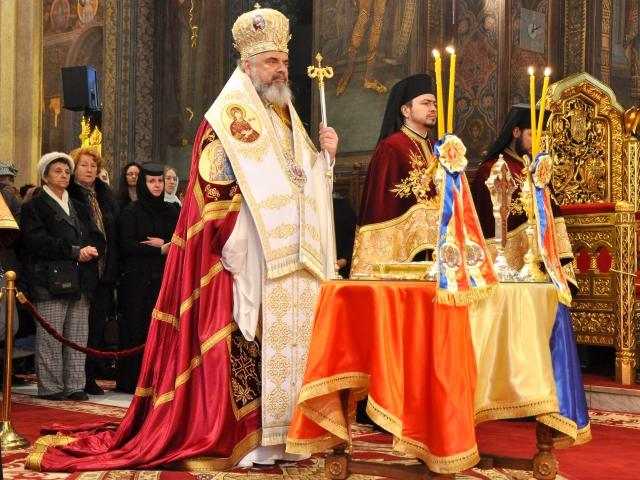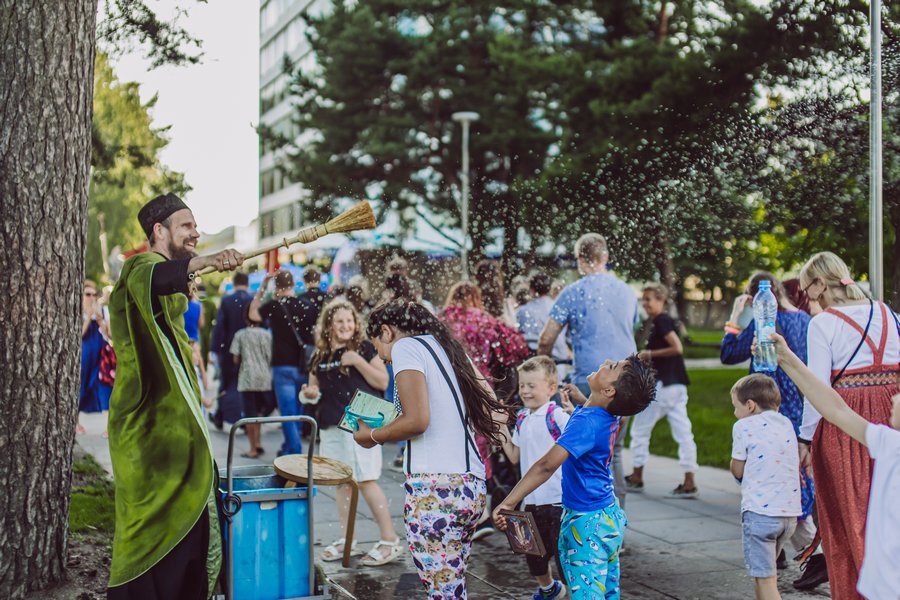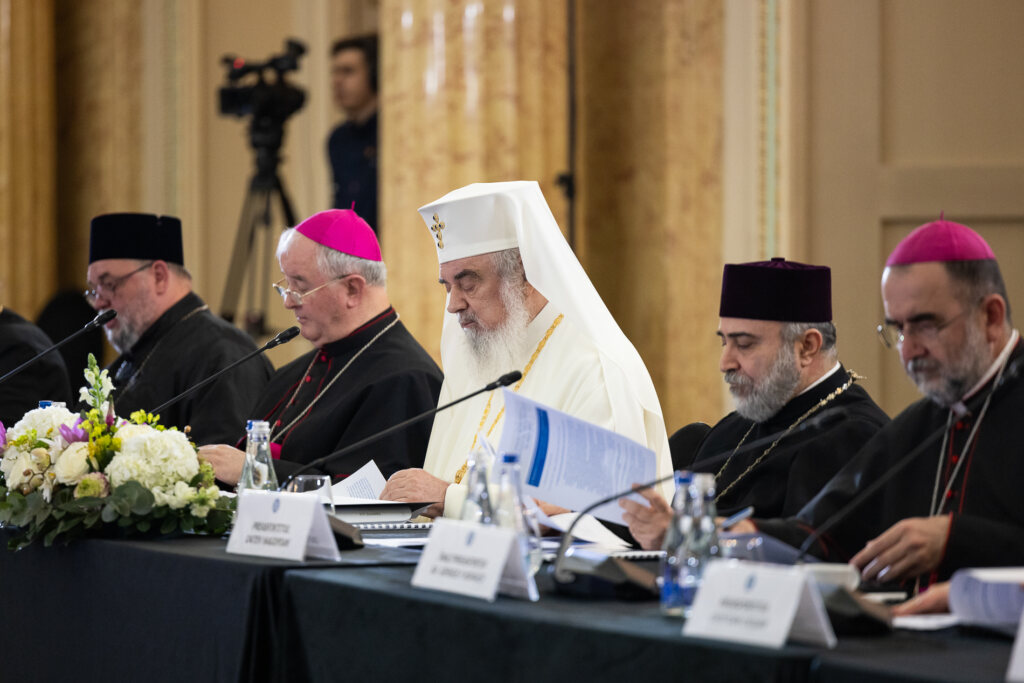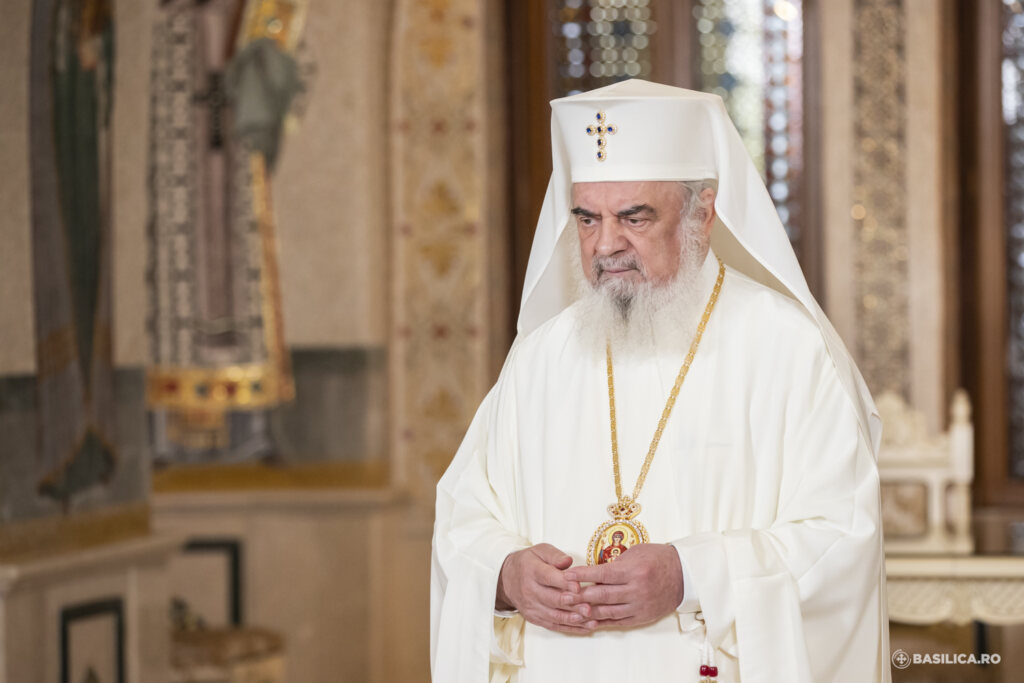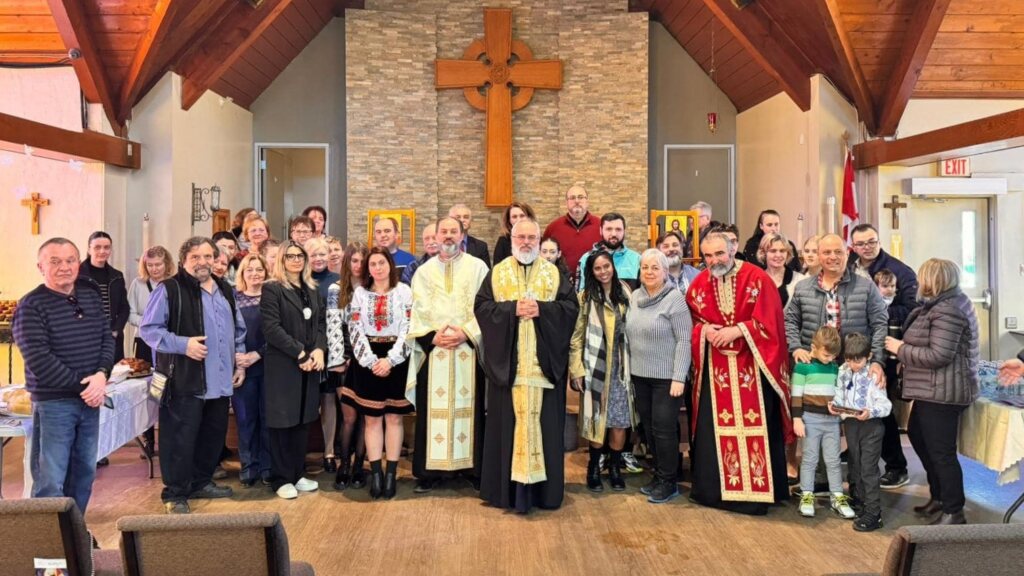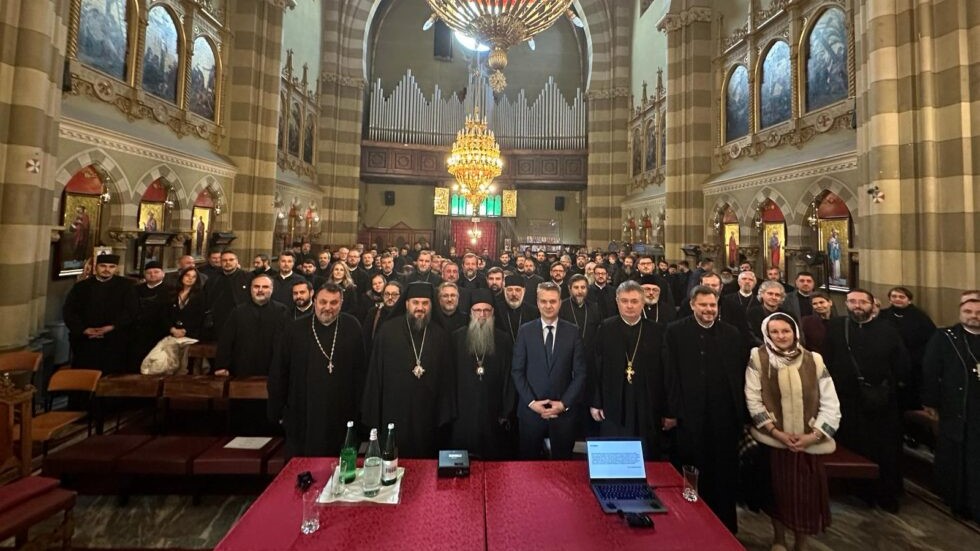On 1 December 2012, a Te Deum service was celebrated at the Patriarchal Cathedral on the occasion of the National Day of Romania. His Beatitude Daniel, Patriarch of the Romanian Orthodox Church celebrated the religious service assisted by priests and deacons, in the presence of many faithful.
On this occasion, the Primate of the Romanian Orthodox Church delivered a sermon for all those present on the Joy Hill.
“We celebrated, with God’s grace, the remembrance service for those who were the authors of the Union of 1918 and thanked God for the benefits bestowed over the Romanian people and especially for the great gift of the national unity implemented in the Romanian Unitary State in 1918. This Te Deum shows us, on the occasion of the national day of Romania, that we must express our gratitude towards God and pray, at the same time, for keeping and cultivating the gifts of the national unity and dignity of the Romanian people”, His Beatitude said.
The Patriarch of Romania has also spoken about the historical context in which the Union of 1918 was done showing that there were favourable circumstances because many empires were disintegrating.
His Beatitude explained that the Church was represented at the Great Union by 5 bishops employed, 4 vicars, 10 delegates of the Orthodox Consistories and of the Greek Catholic Capitles, 129 archpriests, one representative of every Theological – Pedagogical Institute and two representatives of the students of every Theological Institute, as well as by many priests and teachers of the confessional schools chosen as official delegates.
Liturgy of national unity
His Beatitude has also emphasised the fact that thanksgiving prayers to God were said, the ecclesiastic Divine Liturgy was celebrated, and afterwards the Liturgy of national unity.
“The manifestations began with the celebration of the Divine Liturgy, the Romanian praying first for the blessing of God to make a good beginning to their union into a single country, in single unitary state. Thus, thanksgiving services were celebrated first and His blessing was prayed for, then the ecclesiastic Divine Liturgy was celebrated and afterwards the liturgy of national unity”, the Primate of the Romanian Orthodox Church explained.
The Patriarch of Romania remembered the words and speech that Bishop Miron Cristea delivered at the time, as well as the speech of bishop Ioan I Papp presented in the end.
Union shows the presence of the Crucified and Resurrected Christ in the life of the Romanian people
His Beatitude Patriarch Daniel has also underlined the fact that on 14 December a delegation of the Great National Council, headed by Bishop Miron Cristea went to Bucharest and handed the document of the Unification of Transylvania with Romania to King Ferdinand I, then on 24 December 1918, King Ferdinand promulgated the decree confirming the union of Transylvania, of Bessarabia and Bucovina with Romania.
The great event of Alba Iulia was conveyed by all the press and a newspaper of Banat presented a suggestive article on the first page: “We have been risen!, namely the union shows the presence of the Crucified and Risen Christ in the life of the Romanian people”, also said His Beatitude.
Unity brings about joy, dignity and increased force of affirmation of a people
The Patriarch of Romania showed in his speech that the union of 1918 made the basis for the unification of the church life, because in 1925 the Romanian Orthodox Church was raised to the rank of Patriarchate.
“We must remind the fact that this Union of 1918 made the base for the unification of the church life into one single synod of the Romanian Orthodox Church, so that in 1920 the first primate metropolitan was elected in the person of the Bishop of Caransebes, Elie Miron Cristea, who became the first Patriarch of Romania in 1925. So, after Romania was raised to the rank of kingdom in 1881, 4 years later the Autocephaly could be acquired in 1885. The Union of 1918 into a single unitary state made possible the raising of the Romanian Orthodox Church to the highest dignity, namely to the rank of Patriarchate. This union brought about the development of the church life and the awareness of co-responsibility and cooperation, which fact facilitated the raising of our Church to a high dignity as a result expressed, with great force in the change of letters and relations that the first Patriarch of Romania, Miron Cristea had with the sister Orthodox Churches and with the entire Christian world alike. Therefore, we see that unity brings about joy, dignity and greater force of work and affirmation of a people.
The Union had been prepared centuries on end through the cultivation of the national conscience
“Thus, we thank God for this great achievement and remember at the same time, in prayer with devotion and gratitude, all those who contributed to the Union of 1918. This union had been prepared centuries on end through the cultivation of the national conscience, especially of the national conscience of language and nation, expressed by the chroniclers of Moldova and then by the hierarchs of Moldova and Wallachia, full of feelings of unity in faith and ethnic unity through the books they printed, especially through the books of rite and of Christian teachings, spread not only in their own eparchies, but also in Transylvania. The mountains have not succeeded in separating the Romanians from their both parts, but moreover they encouraged them to rise to the height of the national dignity and conscience”, His Beatitude said.
The Romanian Diaspora is part of our Romanian soul as well as of our ideal of communion
To end with his speech, the Patriarch of the Romanian Orthodox Church urged to further cultivate the gift of the unity of national conscience, showing that the Church has always been near the Romanian people.
“The Church has always been near the people when they were crucified as well as when they reached the victory of resurrection getting out of oppression and division. May Good God keep on helping us to cultivate this gift of the unity of national conscience and let us neither forget about our Romanians who live abroad! The Romanian Diaspora which numbers over 4.000.000 Orthodox faithful is part of our Romanian soul and of our ideal of communion beyond the frontiers, beyond the long distances, because the power of prayer cannot be stifled by space and time. Our prayers gather those for whom we pray for the glory of God and our salvation, in the love of God higher than space and time”.
According to the church tradition and decision of the Holy Synod, on the National Day of Romania the specific Te Deum service is celebrated and the heroes of the Romanian nation who made the national unity of the Romanian in 1918 are remembered in the eparchial cathedrals, parish churches and church monasteries from the country and abroad.
